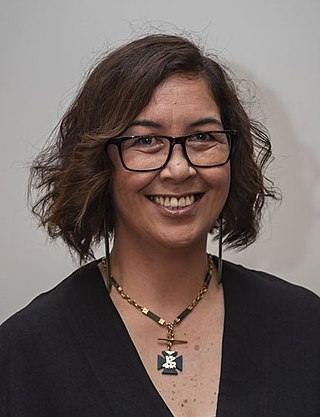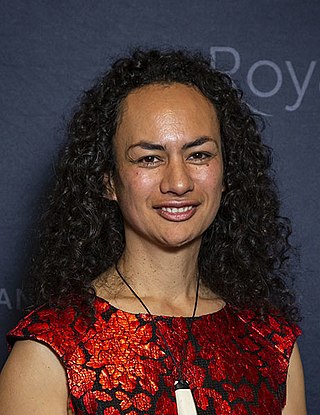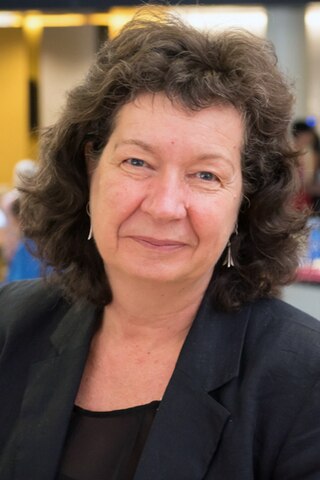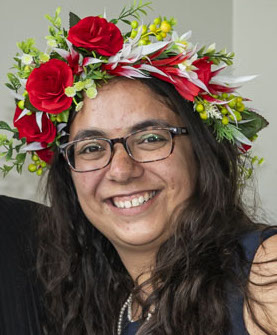Related Research Articles
Acculturation is a process of social, psychological, and cultural change that stems from the balancing of two cultures while adapting to the prevailing culture of the society. Acculturation is a process in which an individual adopts, acquires and adjusts to a new cultural environment as a result of being placed into a new culture, or when another culture is brought to someone. Individuals of a differing culture try to incorporate themselves into the new more prevalent culture by participating in aspects of the more prevalent culture, such as their traditions, but still hold onto their original cultural values and traditions. The effects of acculturation can be seen at multiple levels in both the devotee of the prevailing culture and those who are assimilating into the culture.

The Royal Society Te Apārangi is a not-for-profit body in New Zealand providing funding and policy advice in the fields of sciences and the humanities. These fundings are provided on behalf of the New Zealand Ministry of Business, Innovation and Employment.
The Hector Medal, formerly known as the Hector Memorial Medal, is a science award given by the Royal Society Te Apārangi in memory of Sir James Hector to researchers working in New Zealand. It is awarded annually in rotation for different sciences – currently there are three: chemical sciences; physical sciences; mathematical and information sciences. It is given to a researcher who "has undertaken work of great scientific or technological merit and has made an outstanding contribution to the advancement of the particular branch of science." It was previously rotated through more fields of science – in 1918 they were: botany, chemistry, ethnology, geology, physics, zoology. For a few years it was awarded biennially – it was not awarded in 2000, 2002 or 2004.
Ernest Beaglehole was a New Zealand psychologist and ethnologist best known for his work in establishing an anthropological baseline for numerous Pacific Island cultures.
John Widdup Berry is a psychologist known for his work in two areas: ecological and cultural influences on behavior; and the adaptation of immigrants and indigenous peoples following intercultural contact. The first is broadly in the domain of cross-cultural psychology; the second is in the domain of intercultural psychology.

Rawinia Ruth Higgins is a New Zealand academic whose research focuses on Māori language and culture.

Ngahuia Te Awekotuku is a New Zealand academic specialising in Māori cultural issues and a lesbian activist. In 1972, she was famously denied a visa to visit the United States on the basis of her sexuality.
Claudia Geiringer is a New Zealand professor of law. In 2022 she was elected a Fellow of the Royal Society Te Apārangi.

Ocean Ripeka Mercier is a New Zealand academic specialising in physics and Māori science.

Charlotte Jean Macdonald is a New Zealand historian. After studying as an undergraduate at Massey University, she earned her PhD from University of Auckland and is now a professor at Victoria University of Wellington.

Wendy Larner is a New Zealand social scientist who has focussed on the interdisciplinary areas of globalisation, governance and gender. She has been Vice-Chancellor and President of Cardiff University since September 2023, having previously been provost at Victoria University, Wellington, New Zealand.

Lisa Matisoo-Smith is a molecular anthropologist and Professor at the University of Otago. As at 2018, she is Head of the Department of Anatomy.

Janet Margaret McLean is a New Zealand law academic. She is currently a full professor at the University of Auckland. Mcleans' interests include constitutional law, administrative law, legal method, comparative human rights law and common law theory. She is a Fellow of the Royal Society Te Apārangi.
Marsden grants are the main form of contestable funding for fundamental, 'blue skies' research in New Zealand. Grants are made in all areas of research, in both science and the humanities. The grants are made from the Marsden Fund, which was established by the New Zealand Government in 1994. The Fund is administered by the Royal Society of New Zealand. Most of the grants go to researchers at New Zealand universities, but some go to researchers at Crown Research Institutes and elsewhere.

Tracey Kathleen Dorothy McIntosh is a New Zealand sociology and criminology academic. She is of Māori descent and is currently a Professor of Indigenous Studies and Co-Head of Te Wānanga o Waipapa at the University of Auckland.
Maryanne Connell-Covello Garry is a New Zealand educational psychology academic. As of mid-2018, she is a full professor at the University of Waikato. Garry is a Fellow of the Association for Psychological Science.

Ngapare Kaihina Hopa was a Māori academic of Waikato Tainui descent.

Joanna Kidman is a Māori sociology academic of Ngāti Maniapoto and Ngāti Raukawa descent and as of 2019 is a full professor at Victoria University of Wellington. In 2024 she was elected as a Fellow of the Royal Society Te Apārangi.

Sereana Elina Naepi (née Patterson) is a New Zealand academic and works at the University of Auckland. She is of Fijian and Pākehā descent.

Tracy Berno is a New Zealand academic, specialising in cross-cultural psychology and food. As of 2022 she is a full professor of the culinary arts in the School of Hospitality and Tourism at Auckland University of Technology.
References
- ↑ "Colleen Ward". ward.socialpsychology.org. Retrieved 28 November 2018.
- ↑ "Professor Colleen Ward wins award | Centre for Applied Cross-cultural Research | Victoria University of Wellington". www.victoria.ac.nz. Retrieved 28 November 2018.
- ↑ "Colleen Ward and James Liu – Multiculturalism in Europe and NZ". Radio New Zealand. 21 October 2012. Retrieved 28 November 2018.
- ↑ "Who is involved? | Immigration New Zealand". www.immigration.govt.nz. Retrieved 28 November 2018.
- ↑ Berno, T. E. L. (1995). The socio-cultural and psychological effects of tourism on indigenous cultures (PhD thesis). University of Canterbury.
- ↑ "Royal Society Te Apārangi – List of recipients". royalsociety.org.nz. Retrieved 28 November 2018.
- ↑ "Royal Society Te Apārangi – 2011 Research Honours". royalsociety.org.nz. Retrieved 28 November 2018.
- ↑ "One of the elect | Immigration New Zealand". www.immigration.govt.nz. Retrieved 28 November 2018.
- ↑ "Colleen Ward". Royal Society Te Apārangi. Retrieved 11 May 2021.